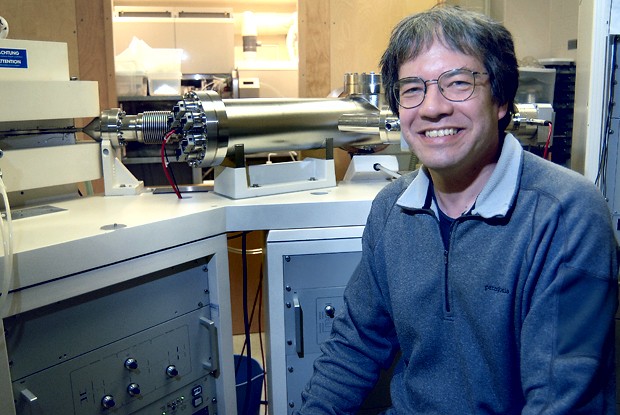A University of Minnesota professor was one of 180 artists, scientists and scholars in the United States and Canada awarded a 2009 Guggenheim Fellowship last week by the John Simon Guggenheim Memorial Foundation out of nearly 3,000 applicants. Geology and geophysics professor Larry Edwards received the award for his careerâÄôs worth of research on climate change. Edwards said he improved the methods used to date certain types of rocks, called uranium-thorium dating, and applied it to cave deposits from China. His research helps prove how man has influenced climate change in the late 20th century by comparing past patterns to recent. He and his team of collaborators used cave deposits, which record thousands of years of climate history, to determine past climate change patterns and causes of those changes. After receiving his bachelorâÄôs degree in both earth science and art and architecture at the Massachusetts Institute of Technology in 1976, Edwards said he didnâÄôt work on climate change immediately. âÄúI spent a long time figuring out what I wanted to do,âÄù he said. He spent several years at various jobs, including picking apples and building birch bark canoes in northern Minnesota, before returning to academics. He received a masterâÄôs in geology from the University of Michigan and a doctorate in geochemistry from the California Institute of Technology . âÄúIâÄôve always been interested in these processes that occur right up at the surface of the earth,âÄù he said. He said he originally worked on uranium and thorium measurements to determine how lava is formed. Then he realized he could more accurately use the method on coral skeletons to determine sea levels in the past. That work contributed to a timeline of ice ages. He teaches several geology and geochemistry courses at the University and said although he has to work hard, he likes having the freedom to study what he enjoys. âÄúI really get excited about finding out new things,âÄù he said. Research associate Hai Cheng , who has run the lab at the University since 1993, is involved in collaborating with scientists in China to obtain the cave deposits. âÄúWe work together really closely,âÄù Cheng said. âÄúWe generate a lot of good ideas.âÄù Edwards has been married to wife Missy McDonald for 20 years and has two daughters. Edwards said he spends most of his time with work or his family. McDonald said Edwards took a risk when he decided to research climate change in 1979. âÄúWhen he first got into the climate change business, it was not a word that anybody had really heard about,âÄù she said. âÄúIt was not a buzz word.âÄù The future of his climate change work will include dating the cave deposits back further in time than the current 400,000-year span and expanding the climate records further geographically.
Prof wins prestigious award for years of climate research
Larry Edwards was among 180 recipients of a 2009 Guggenheim Fellowship.

Image by Chris Roberts
Larry Edwards, George and Orpha Gibson Chair of Earth Systems Science and Distinguished McKnight University Professor, recipient of a Guggenheim fellowship is pictured in front of a mass spectrometer used to determine the molecular composition of substances.
Published April 14, 2009










